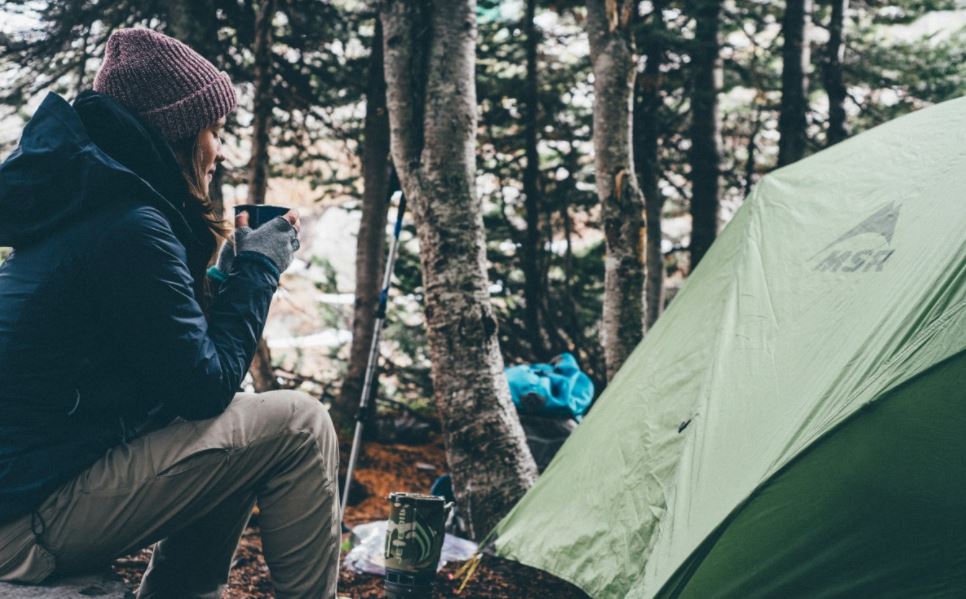Ultimate Guide To What Dry Camping Is

Dry camping is also called boondocking and it is a term used for camping without any type of electrical, water or sewer hookups. This means that you must be completely self-sufficient while camping in this manner. Dry camping can be done in a number of ways, including in an RV, truck camper, van or tent.
There are a few things that you will need to keep in mind when dry camping. One is that you will need to have plenty of fresh water on hand, as it is not possible to simply run a hose from your campsite to your RV or trailer. You will also need to have a way to dispose of wastewater, either by using a portable toilet or by dumping it into a designated sanitation dump station.
Disadvantages and Advantages of Dry Camping
Camping in the regular term is the act of spending a night outdoors in a shelter, such as a tent or RV. This is typically done for leisure purposes, but can also be practiced as a form of survival when one does not have access to other means of housing.
In standard campgrounds, there are washrooms and bathrooms with running water. However, these things cannot be accessed by dry campers, therefore this style of camping poses certain disadvantages. Below is a list of disadvantages and advantages.
- More work needed
Without access to running water, campers must take on additional chores such as washing dishes and clothes by hand, or using a portable RV dishwasher or washer/dryer.
- Limited resources
Since dry camping doesn't include the use of electrical hookups, campers have to be more resourceful with how they use their power. This might mean conserving energy when it comes to things like using lights and appliances.
- You have to pack heavy
Dry camping will require campers to pack in and out more supplies than they might use on a regular trip.
- Save money
Dry camping is cheaper than staying at a regular campground because you don't need to pay for water, or electric hookup fees. You also save money by cooking over a fire instead of using propane stoves and other gadgets used inside RVs.
- Privacy
Off the grid, you won't have to share your campsite with anyone else if you don't want to! It's just you, nature and the sounds of nature.
- Freedom
Camping this way means feeling free from modern distractions like cell phones, which can be useful in certain situations but may not always be wanted.
- Less Restriction
Being restricted to campground rules, including quiet time, is a pain if you're camping with your kids and they just won't keep the noise down.
- Sustainability
Camping this way can be a huge help to the environment as well as those who choose to live off of it. You don't have to run water or electricity from somewhere else on the grid, so you cut down on energy use and save some fresh water for local wildlife.
Dry camping in a car vs a rv
Rvs will usually be more comfortable for dry camping than a car will. They have more storage and tend to be more weather-resistant. However, there are some things to consider before taking your rv on a dry camping trip. Fresh water tanks, gray water tanks, and black water tanks all need to be considered - will you have enough capacity to last the length of your stay? And what about generators? Many rvs come with their own built-in generators, but if yours doesn't or if you're using a car for dry camping, you'll need to bring one along.
Another thing to consider is the climate where you'll be camping. If it's cold, you'll need to make sure your rv is winterized and that you have plenty of warm clothes and bedding. If it's hot, you'll need to make sure your rv is well-ventilated and that you have plenty of cold drinks and ice on hand.
Subscribe
Stay updated with our newsletter
![dry camping fire]()
Where can you dry camp?
Dry camping can be done in a variety of places. The most common is on public land like BLM (Bureau of Land Management), National Forest, State Park and Bureau of Reclamation. These areas are great for day use as well as overnight stays.
Private land is also popular with dry campers. Many owners will allow you to pull into their property free of charge or for a small fee. It's important to always ask permission first before pulling onto private land if you're not sure whether it's okay to park there.
Final Verdict
Despite the challenges, dry camping can be a lot of fun. You get to really connect with nature, enjoy the stars at night, and experience all the wonderful things that come with camping. If you're interested in trying it out, do your research ahead of time so you know what to expect and can be prepared for anything.
So, what is dry camping? In a nutshell, it's camping without any of the amenities you usually find at campgrounds, no flush toilets, no showers, no running water. Dry camping has been around for a long time, and it's especially popular with RVers. The idea is that you can save money by not having to pay for hookups, and you can also get away from the crowds and enjoy some peace and quiet.




